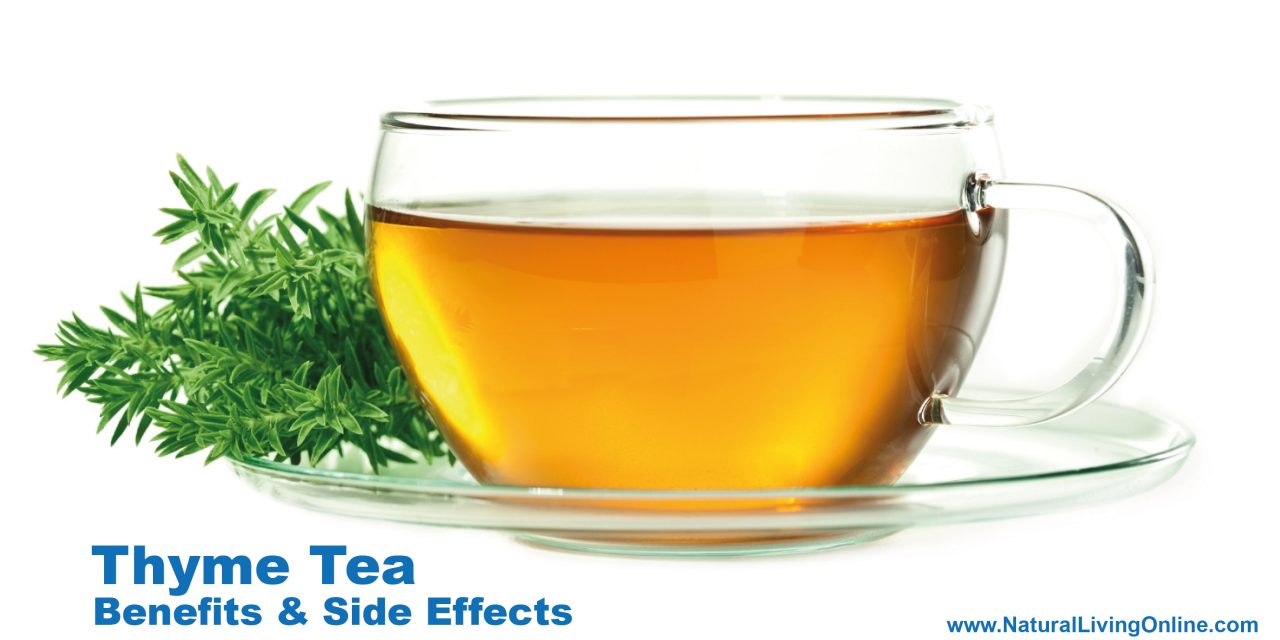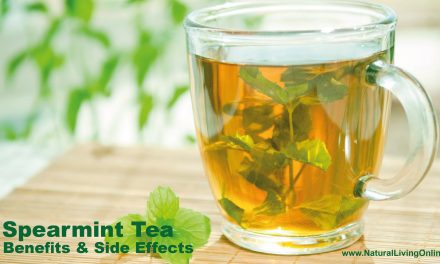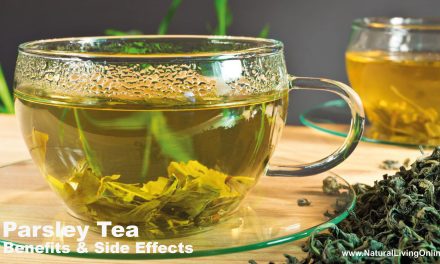Thyme tea is a flavorful beverage made from the leaves of the thyme plant. This herb has been used for centuries in cooking and traditional medicine. Many people drink thyme tea for its potential health benefits.
Thyme tea may have antibacterial, antioxidant, and anti-inflammatory properties. These qualities could help support the immune system and overall health. Some studies suggest thyme tea might aid digestion, reduce coughing, and ease respiratory issues.
While thyme tea offers potential benefits, it’s important to be aware of possible side effects. Some people may experience stomach upset or allergic reactions. It’s best to start with small amounts and talk to a doctor before using thyme tea for medicinal purposes.
Key Takeaways
- Thyme tea contains compounds that may support health and wellness.
- Possible benefits include immune support, improved digestion, and respiratory relief.
- Moderate consumption is advised due to potential side effects in some individuals.
The Origins and Nature of Thyme

Thyme has a long history of use in traditional medicine and cooking. This aromatic herb belongs to the mint family and is native to the Mediterranean region.
Historical Use in Traditional Medicine
Thyme played a key role in ancient healing practices. The Egyptians used it for embalming, while the Greeks and Romans burned it as incense. In medieval Europe, people placed thyme under pillows to ward off nightmares.
The herb gained popularity for treating respiratory issues. People made thyme tea to soothe coughs and sore throats. It was also used for digestive problems and to boost immunity.
Thyme’s antimicrobial properties made it valuable for cleaning wounds. Some cultures believed it could provide courage and strength to warriors.
Thymus Vulgaris: The Botanical Profile
Thymus vulgaris, or common thyme, is a small shrub with woody stems. It grows up to 12 inches tall and has tiny, fragrant leaves. The plant produces small pink or purple flowers in summer.
Thyme thrives in sunny, dry conditions with well-drained soil. It’s related to other Mediterranean herbs like oregano and sage. The plant contains essential oils that give it its distinct aroma and flavor.
There are over 300 thyme species, each with unique characteristics. Some popular varieties include lemon thyme and caraway thyme. Gardeners often use thyme as ground cover or in herb gardens.
Health Benefits of Thyme Tea
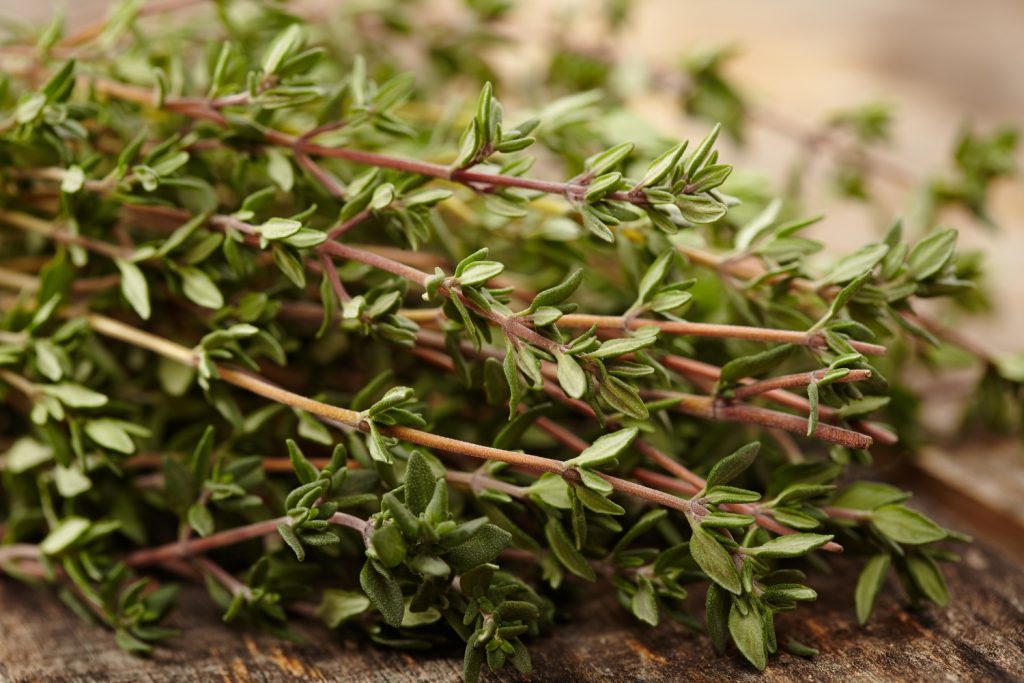
Thyme tea offers many health benefits. It can help with breathing, digestion, and fighting germs. The tea also supports healthy skin and a strong immune system.
Boosting the Immune System
Thyme tea contains vitamin C, which helps the body fight off illness. The tea has antioxidants that protect cells from damage. These properties work together to make the immune system stronger.
Drinking thyme tea may help prevent colds and flu. It can also speed up recovery when sick. For an extra immune boost, adding honey to thyme tea is a good idea.
Thyme tea’s antibacterial qualities can fight harmful germs in the body. This helps keep infections away and promotes overall health.
Respiratory Health Improvement
Thyme tea is great for breathing problems. It can help with coughs, colds, and chest congestion.
The tea works as an expectorant, which means it loosens mucus in the airways. This makes it easier to breathe and cough up phlegm.
Thyme tea may ease symptoms of bronchitis. Its anti-inflammatory effects can reduce swelling in the airways.
For those with asthma, thyme tea might offer some relief. It can help open up airways and make breathing easier.
Digestive Health Support
Thyme tea aids digestion in several ways. It can soothe an upset stomach and reduce gas.
The tea has antispasmodic properties. This means it can help relax the muscles in the digestive tract. As a result, it may ease stomach cramps and bloating.
Thyme tea might boost appetite. This can be helpful for people who struggle to eat enough.
The tea’s antibacterial qualities can also help maintain a healthy balance of gut bacteria. This supports overall digestive health.
Skin and Oral Care Applications
Thyme tea offers benefits for skin and oral health. Its antifungal properties can help fight skin infections.
The tea may help clear up acne when applied to the skin. Its anti-inflammatory effects can reduce redness and swelling.
For oral care, thyme tea can be used as a mouthwash. It may help fight bad breath and reduce gum inflammation.
Thyme tea’s antibacterial qualities make it useful for minor cuts and scrapes. It can help clean wounds and prevent infection.
Nutritional Composition of Thyme
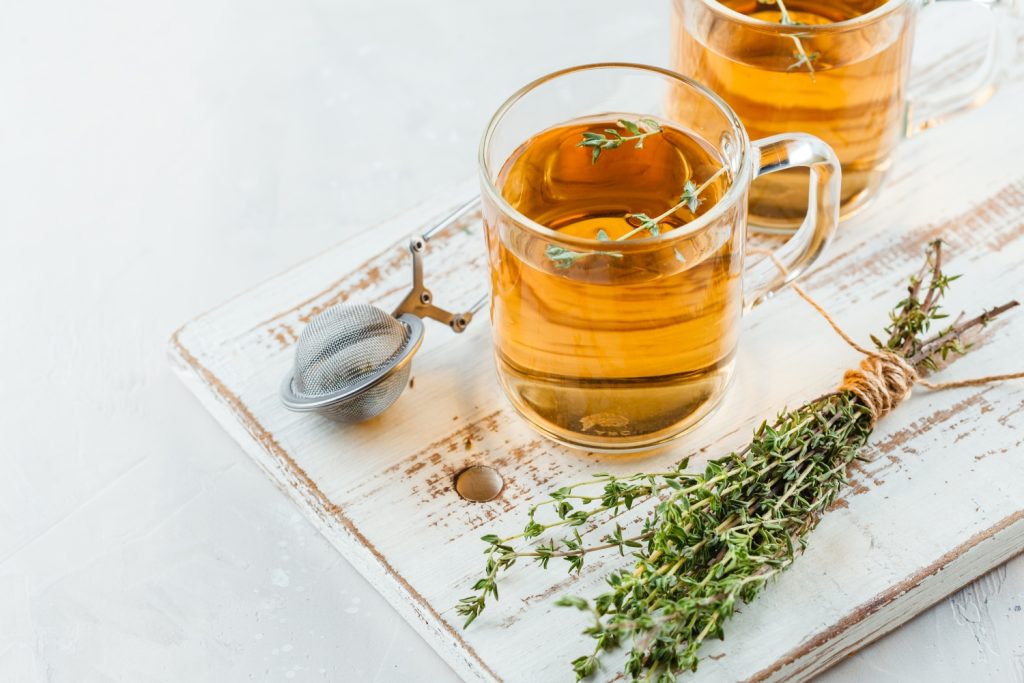
Thyme leaves pack a punch when it comes to nutrients. They contain a variety of vitamins, minerals, and antioxidants that contribute to their health benefits.
Vitamins and Minerals Present in Thyme Leaves
Thyme leaves are rich in essential vitamins and minerals. They contain vitamin C, which helps boost the immune system. Vitamin A is also present, supporting eye health and skin function.
The mineral content of thyme is impressive. It includes:
- Iron: Important for blood health
- Copper: Aids in energy production
- Manganese: Supports bone health and wound healing
Thyme also provides small amounts of calcium, magnesium, and potassium. These minerals play key roles in various bodily functions, from muscle contraction to nerve signaling.
Antioxidant Compounds in Thyme
Thyme is known for its high antioxidant content. These compounds help protect cells from damage caused by free radicals.
Some of the main antioxidants found in thyme include:
- Thymol
- Carvacrol
- Rosmarinic acid
These antioxidants give thyme its strong flavor and aroma. They also contribute to thyme’s potential health benefits, such as reducing inflammation and fighting harmful bacteria.
Thyme’s antioxidant profile makes it a valuable herb for supporting overall health and well-being. Its compounds may help protect against various chronic diseases and support a healthy immune system.
Potential Side Effects and Precautions
Thyme tea can cause some unwanted effects and may not be safe for everyone. It’s important to be aware of possible reactions and who should be careful when drinking it.
Interactions with Medications and Health Conditions
Thyme tea may interact with certain medications. It can affect blood clotting, so people taking blood thinners should be cautious. Those with high blood pressure may need to monitor their levels when drinking thyme tea regularly.
People with hormone-sensitive conditions should check with a doctor before using thyme tea. It may act like estrogen in the body. Thyme can also lower blood sugar levels, so diabetics should watch their glucose carefully.
Advice for Sensitive Groups
Pregnant and breastfeeding women should limit thyme tea intake. Not enough is known about its safety during these times. Children and older adults may be more sensitive to thyme’s effects.
Some people may have allergic reactions to thyme. Symptoms can include itching, swelling, or trouble breathing. Anyone with allergies to plants in the mint family should be careful with thyme tea.
It’s best to start with small amounts of thyme tea to test for any bad reactions. If side effects occur, stop drinking it and talk to a healthcare provider.
Incorporating Thyme Tea into Your Diet
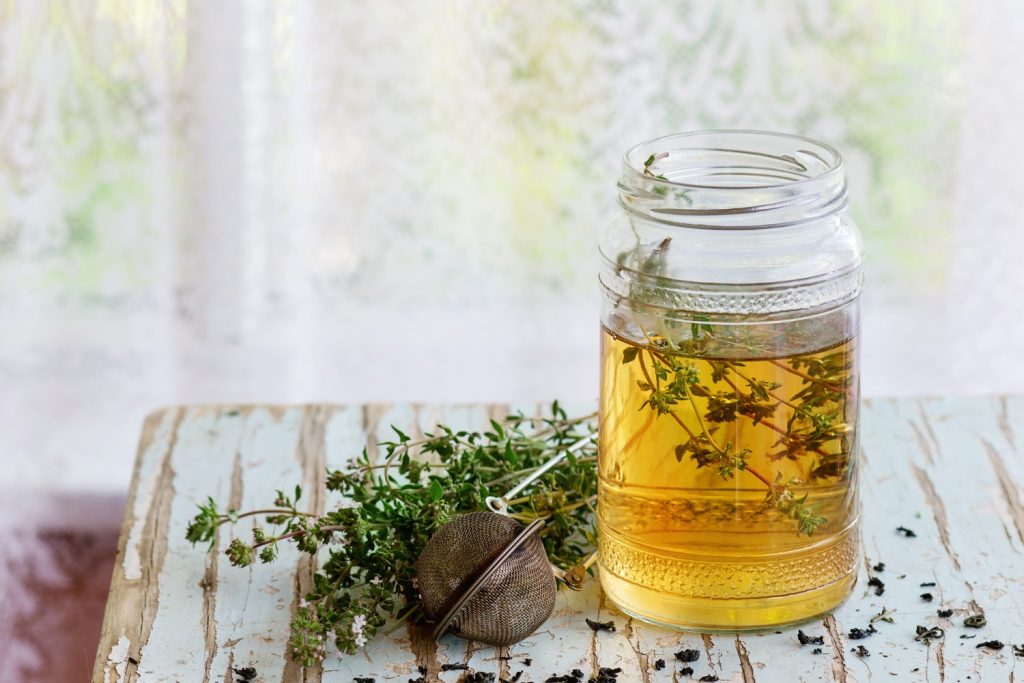
Thyme tea is easy to make at home and can be used in many ways beyond just drinking. It adds flavor and aroma to both sweet and savory dishes.
Preparing Thyme Tea at Home
To make thyme tea, start with fresh or dried thyme leaves. Use 1-2 teaspoons of dried thyme or 1 tablespoon of fresh thyme per cup of water. Boil water and pour it over the thyme. Let it steep for 5-10 minutes.
Strain the tea into a cup. Add honey or lemon to taste if desired. For extra flavor, try mixing thyme with other herbs like mint.
Thyme tea can be enjoyed hot or iced. To make iced tea, brew it stronger and pour over ice.
Creative Uses in Cooking and Beyond
Thyme tea isn’t just for drinking. It can add flavor to many dishes. Use cooled thyme tea as a marinade for meats or vegetables. It works well with chicken, fish, and roasted veggies.
Add thyme tea to soups, stews, or sauces for extra depth. It pairs nicely with mushrooms and root vegetables.
For baking, replace some of the liquid in recipes with thyme tea. It can add a subtle herbal note to cakes, cookies, or bread.
Thyme tea can also be used as a natural air freshener. Simmer it on the stove to fill your home with a pleasant aroma.
Frequently Asked Questions
What are the potential health benefits of drinking thyme tea?
Thyme tea may provide several health benefits. It contains antioxidants that can support the immune system. The tea may also help with digestion and reduce inflammation in the body. Some studies suggest thyme tea could have antimicrobial properties. This means it may fight harmful bacteria and fungi.
Can thyme tea provide relief for respiratory conditions?
Thyme tea may help with respiratory issues. It has been used in traditional medicine to treat colds, coughs, and other breathing problems. The tea’s natural compounds might help relax the muscles in the throat and airways. This could make breathing easier for some people.
Is there any research on thyme tea’s impact on skin health?
Some evidence suggests thyme tea may benefit skin health. Its antioxidant properties could protect skin cells from damage. Thyme tea might help reduce inflammation and fight bacteria on the skin. However, more research is needed to confirm these effects.
Are there any known side effects associated with the consumption of thyme tea?
While generally safe, thyme tea can cause side effects in some people. Allergic reactions are possible, especially for those sensitive to plants in the Lamiaceae family. Drinking large amounts of thyme tea might lead to upset stomach or nausea in some cases. It’s best to start with small amounts to see how your body reacts.
Which individuals should consider avoiding thyme tea?
Pregnant women should be cautious with thyme tea. Its effects during pregnancy are not well-studied.
People taking blood thinners or with bleeding disorders should talk to a doctor before drinking thyme tea. It might interact with certain medications.
Does consuming thyme tea affect blood pressure levels?
Some research suggests thyme tea may impact blood pressure. Thyme has been used in traditional medicine for high blood pressure. However, more studies are needed to confirm its effects on blood pressure. People with blood pressure concerns should consult a healthcare provider before regularly consuming thyme tea.
References:
Thyme Tea and Primary Dysmenorrhea Among Young Female Students
Effects of wild Thyme (tea) on autonomic nervous system (Heart Rate Variability) in an elderly man
This website does not provide medical advice.
All information provided on this website, and on associated social media networks, including but not limited to texts, images, and numbers are for general information purpose only. It is not intended as medical advice and it does not include all possible precautions, side effects, or interactions that may occur. Neither NaturalLivingOnline.com nor its author/founder take responsibility for how you use this information. Statements contained on NaturalLivingOnline.com have not been evaluated by the FDA. You should conduct thorough research via multiple sources and consult your physician or qualified doctor before using any essential oil or herbal remedy. Information on NaturalLivingOnline.com must not be relied upon for medical, legal, financial or other decisions.

